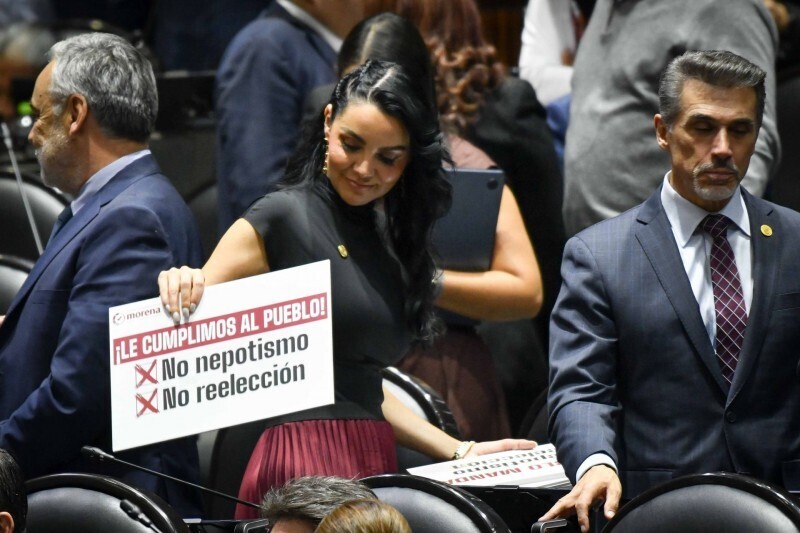
The ruling party is not satisfied with Gabriela Jiménez's attempts to advance her own party or her negotiations with the PRI and PAN. Therefore, they would be considering reducing her influence as a deputy and, especially, as vice-coordinator of Morena.
According to some sources, Jiménez's strategy aimed to ingratiate herself with President Claudia Sheinbaum, who had criticized the modifications made by the Senate to her electoral reform. However, the 4T failed to reverse those provisions, which generated discontent in Morena as they felt that the deputy's strategy exceeded party limits.
This situation adds to the pre-existing tensions between Morena's leadership and the deputy herself, especially after Jiménez and her husband moved forward with the procedures to turn their movement 'Que Siga la Democracia' into a parallel political party, which is prohibited by the party's statutes.
In light of these circumstances, some sectors of Morena are seeking to limit Gabriela Jiménez's influence, looking to 'encapsulate' her to restrict her participation both in the Chamber of Deputies and in the party. Despite Jiménez's attempts to distance herself from the situation, the ruling party does not view her actions favorably, as she was a promoter of them.
Tensions between the more radical sectors of Morena and the vice-coordinator of the ruling parliamentary group continue to grow. The party has initiated a sanctioning process against her that could result in her expulsion from the 4T. The discontent within the party arose from Jiménez's attempts to negotiate with the PRI and PAN to modify the anti-nepotism law, which did not turn out as she expected.












